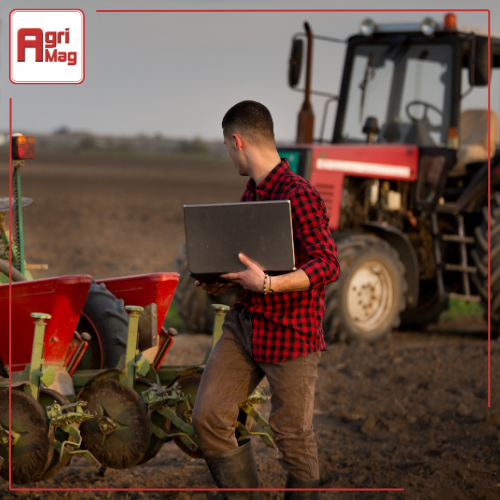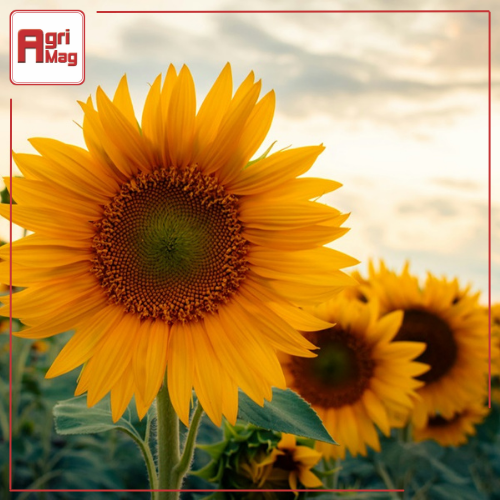
Maximising Sunflower Farming Success: Essential Tips and Advice
Date: 16/11/2023
Are you into sunflower farming and looking for tips to make it a success? Sunflower farming can be a rewarding venture, but it requires careful planning, proper execution, and ongoing management to ensure maximum yields and profitability. Let us explore essential tips and advice to help you optimise your farming of sunflower efforts. Whether ou're a seasoned farmer or new to the field, these insights will be invaluable in enhancing your farming of sunflower success. Now, it's time to delve in and uncover the keys to thriving in the sunflower industry. Take a look at the range of sunflower headers farming equipment available on AgriMag.
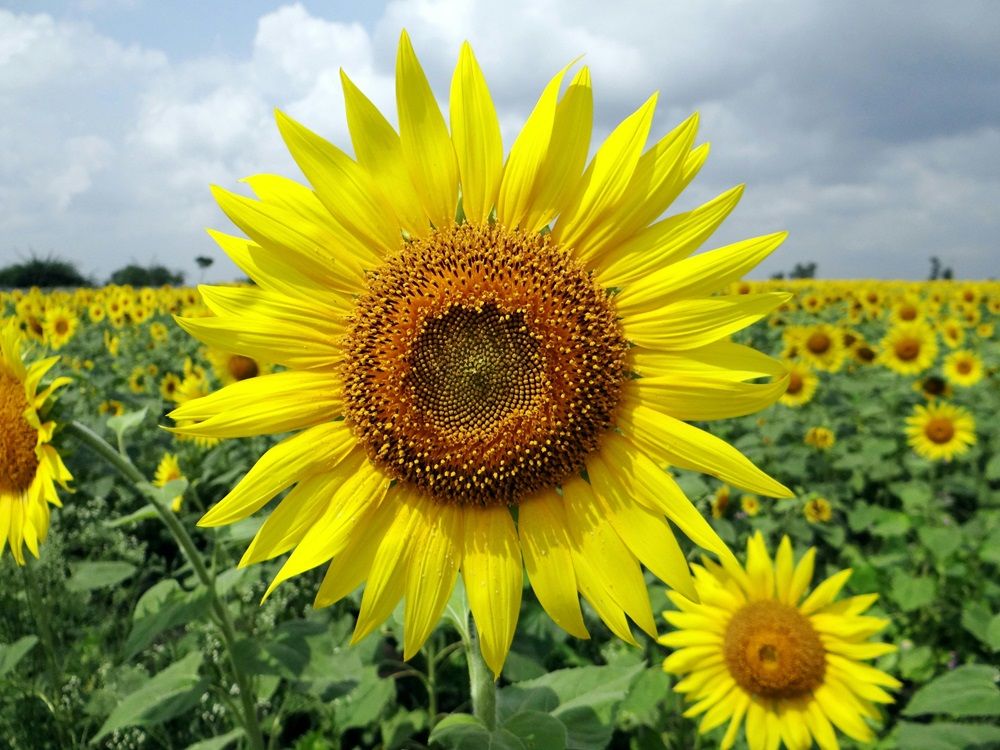 Photo by Pixabay on Pexels
Photo by Pixabay on Pexels
Understanding Sunflower Cultivation
Before diving into the tips for success, it's crucial to understand the basics of sunflower cultivation. Sunflowers (Helianthus annuus) thrive in warm climates with well-drained soil and plenty of sunlight. South Africa's diverse climate makes it suitable for sunflower cultivation in various regions, with optimal planting times typically falling between September and November.
Essential Tips and Advice to Help you Optimise your Sunflower Farming Endeavors
1. Selecting the Right Variety:
Choosing the appropriate sunflower variety is crucial for successful farming. Consider factors such as climate, soil type, and intended use (oil production or birdseed). Opt for varieties that are well-suited to the specific conditions of your region to ensure optimal growth and yield.
2. Soil Preparation and Fertilisation:
Prepare the soil thoroughly before planting by plowing, harrowing, and leveling the land. Conduct soil tests to determine nutrient levels and pH, and amend the soil as needed with organic matter and fertilisers. Proper soil preparation sets the foundation for healthy sunflower growth and development.
Read: What are Soil Health Indicators and How Can They Help Your Farm?
3. Planting Time and Spacing:
Timing is key when it comes to planting sunflowers. In our country, aim to plant sunflower seeds during the optimal planting window, which typically falls between September and November, depending on your location. Follow recommended spacing guidelines to allow each plant sufficient room to thrive and minimise competition for resources.
4. Irrigation Management:
Sunflowers require adequate moisture throughout their growth stages, particularly during flowering and seed development. Implement an efficient irrigation system to ensure consistent water supply, taking into account factors such as soil moisture levels, weather conditions, and water quality. Monitor soil moisture regularly and adjust irrigation schedules as needed to prevent water stress.
Read: How to Set Up a Farm Irrigation System: A Guide for Farmers
5. Pest and Disease Control:
Protect your sunflower crop from common pests and diseases that can significantly impact yield and quality. Implement integrated pest management strategies, including crop rotation, use of resistant varieties, and timely application of insecticides and fungicides. Monitor your fields regularly for signs of pest infestation or disease symptoms, and take prompt action to mitigate risks.
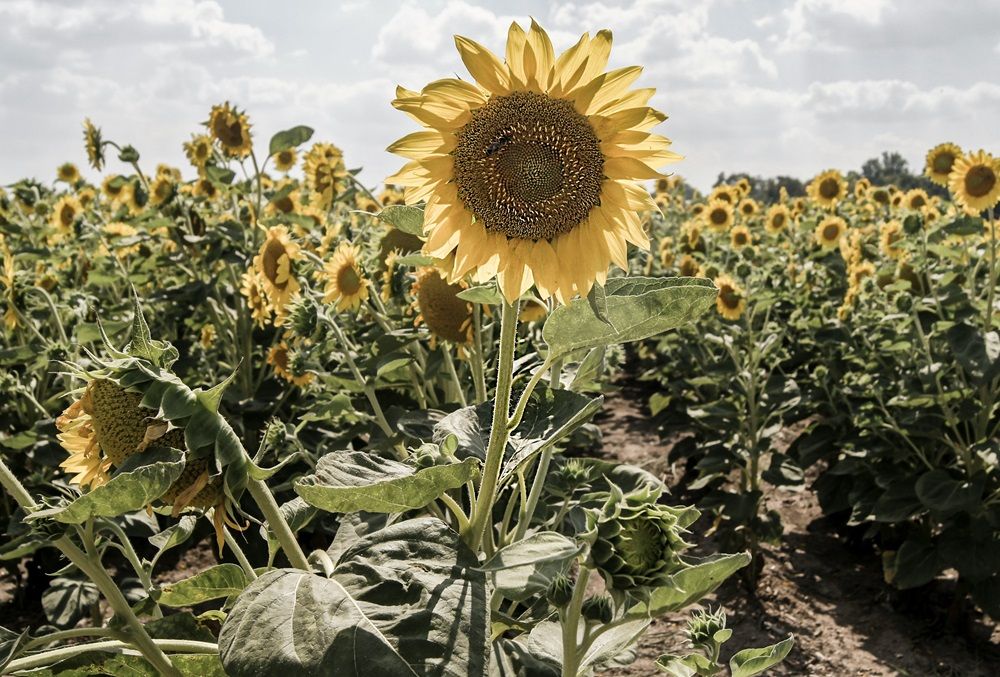 Photo by Krsto Jevtic on Unsplash
Photo by Krsto Jevtic on Unsplash
6. Effective Weed Management
Weeds compete with sunflowers for nutrients, water, and sunlight, potentially reducing yields if left unchecked. Employ a combination of pre-emergent and post-emergent herbicides, along with cultural practices such as crop rotation and mulching, to control weed populations effectively. Regular scouting and timely intervention are key to maintaining weed-free fields throughout the growing season.
7. Harvesting and Post-Harvest Handling:
Harvest sunflowers at the optimal stage of maturity to maximise seed yield and quality. Monitor crop maturity by observing seed color and moisture content, and use specialised equipment such as combine harvesters equipped with appropriate headers for efficient harvesting. Proper post-harvest handling is crucial to preserve seed quality and minimise losses during storage and transportation.
In summary, maximising sunflower farming success requires a combination of sound agronomic practices, effective pest and disease management, and proper post-harvest handling. By selecting suitable varieties, preparing the soil adequately, implementing crop rotation, and adopting efficient irrigation and weed management strategies, farmers can optimise yields and profitability in the market. Remember to stay informed about the latest research and developments in this type of farming and adapt your practices accordingly. Browse through Sunflower headers Farming Equipment on AgriMagfor the tools and machinery you need to take your sunflower farming operations to the next level.
Categories:
Common category
Category Search:
Latest articles:
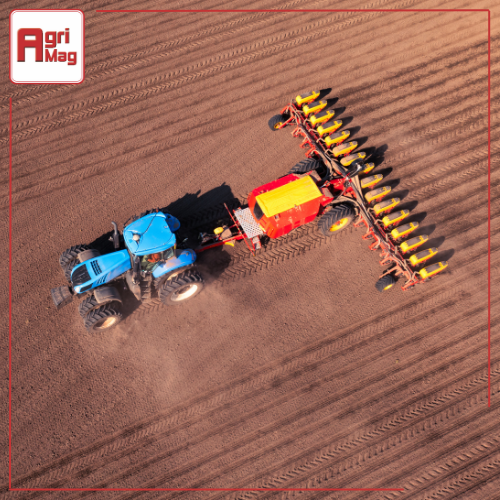
Factors to Consider When Choosing Planting and Seeding Equipment

NAMPO 2024 Embraces Connectivity for Sustainable Growth
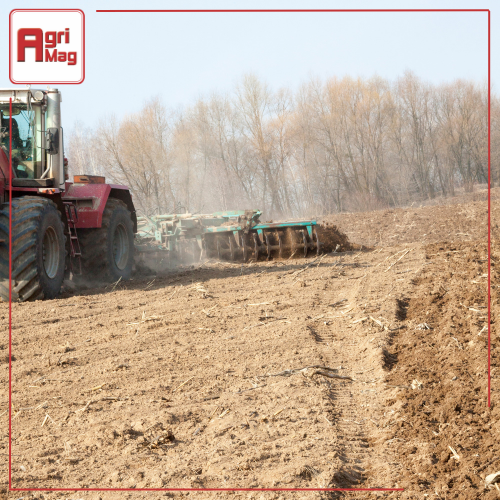
Tillage Equipment on AgriMag: Empowering Small Farms


